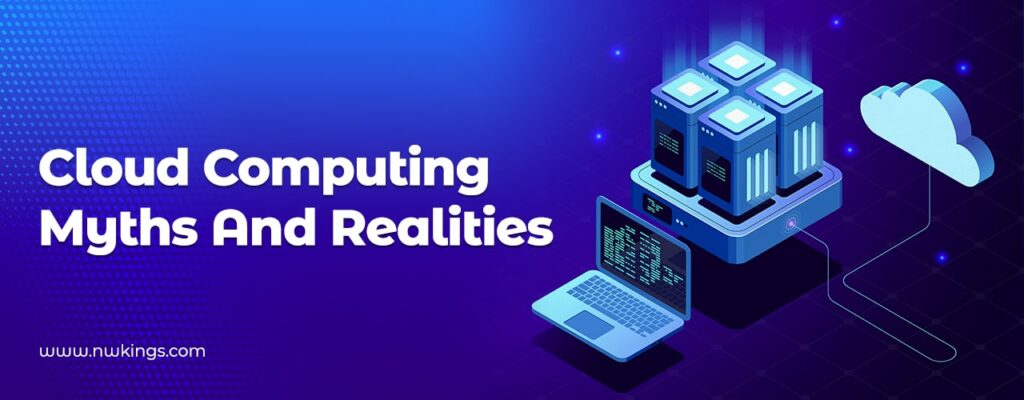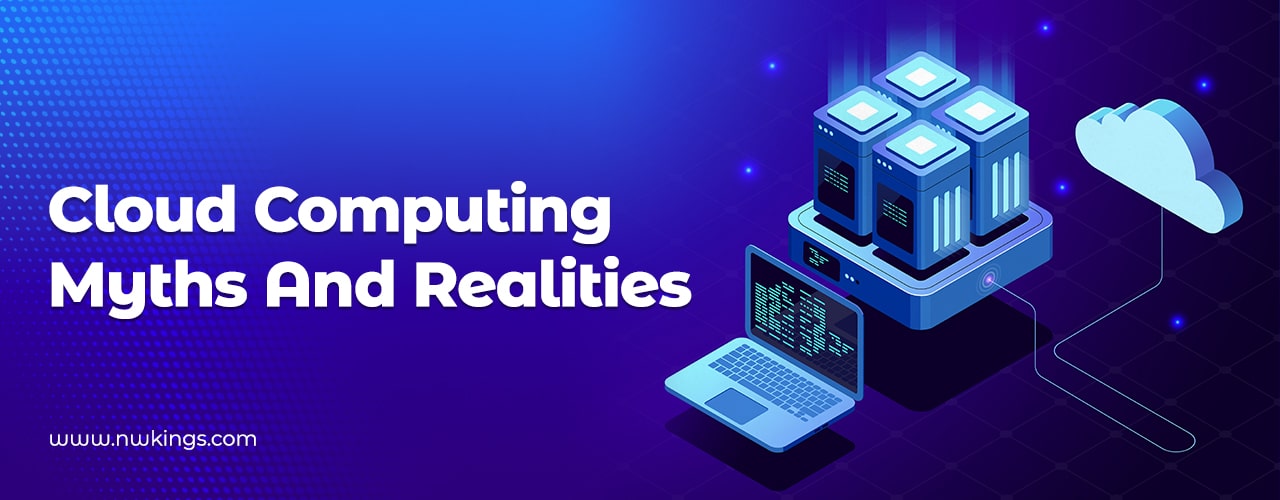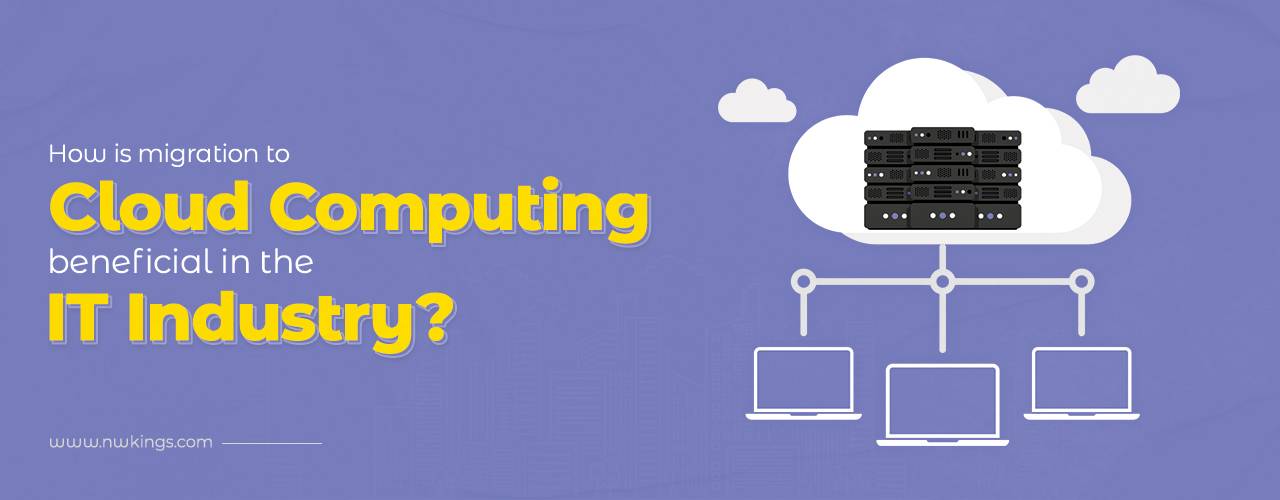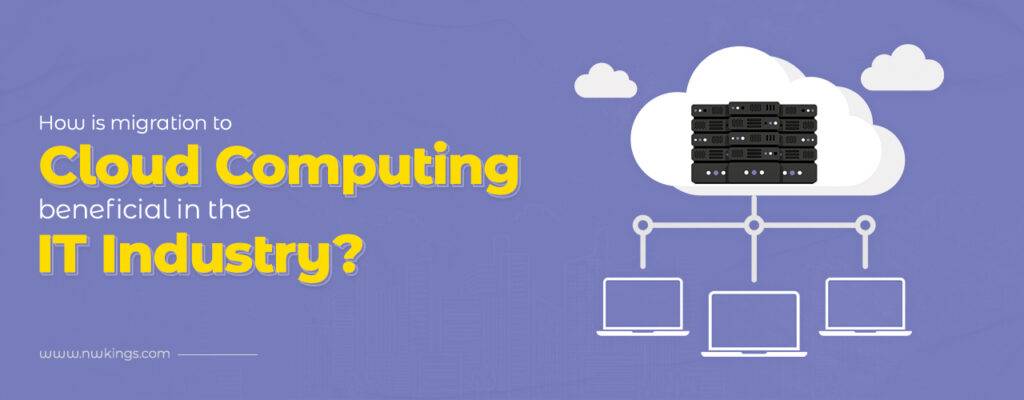
Cloud computing has transformed the way businesses manage their data and applications. Cloud computing is a rapidly growing technology that offers on-demand access to a shared pool of configurable computing resources.
People have associated numerous myths with Cloud Computing, and still, the world is confused between truth and illusions. Therefore, here is our blog on Cloud Computing Myths And Realities; keep reading it till the end to demystify the myths and understand the cloud domain better.
What is Cloud Computing?
Cloud computing means accessing resources like servers, storage, databases, and software over the internet when in need. There is no need to own or maintain the physical infrastructure. Cloud Computing has become a popular choice for businesses of all sizes because it is scalable, flexible, and cost-effective.
What are the benefits of Cloud Computing in IT?
The top benefits of Cloud Computing in IT are as follows-
- Cost Savings
Cloud Computing helps to reduce IT costs since they do not need to purchase expensive hardware and software, pay for maintenance and upgrades, and hire IT staff. Instead, they pay for the services they need on a pay-as-you-go model, which is much more cost-effective.
- Security
Cloud Computing providers invest heavily in security measures to ensure their data is safe, including physical security measures, such as data centers with restricted access and advanced encryption with authentication methods.
- Flexibility
Cloud Computing allows organizations to scale, which means they can easily add more storage or computing power whenever needed without investing in new hardware or infrastructure.
- Mobility
Cloud Computing enables employees to access data and applications from anywhere and on any device enabling remote work and productivity.
- Insight
Cloud Computing provides real-time insights and analytics that help organizations make data-driven decisions, including data on customer behaviour, trends, and operational metrics.
- Increased Collaboration
Cloud Computing enables real-time collaboration and document sharing among team members, regardless of location and helps teams work more efficiently and effectively.
- Quality Control
Cloud Computing helps to ensure consistency and quality in their IT infrastructure and applications, including centralized management and automated testing and deployment.
- Disaster Recovery
Cloud Computing provides reliable and secure backup and disaster recovery solutions, ensuring that organizations can quickly recover from disasters and minimize downtime.
- Loss Prevention
Cloud Computing helps to prevent data loss by providing secure data storage and backup solutions.
- Automatic Software Updates
Cloud Computing providers manage software updates and upgrades and help to maintain and update software, ensuring they always have the latest and most secure versions of their applications.
- Competitive Edge
Cloud Computing help organizations stay ahead by providing access to advanced IT infrastructure and resources.
- Sustainability
Cloud Computing helps organizations reduce energy consumption and reliance on physical hardware so that Cloud Computing providers run data centers more efficiently and use renewable energy sources.
Cloud Computing Myths and Realities
SR. NO. |
MYTHS |
REALITIES |
1. | Cloud computing is only for big businesses. | Cloud computing is accessible to businesses of all sizes. Many cloud services get designed to cater to small and medium-sized businesses. |
2. | The cloud is less secure. | The security of the cloud depends on the provider and the measures taken to secure their data centers. Many cloud providers offer robust security measures. In many cases, the cloud can be more secure than on-premises solutions. |
3. | Cloud computing is always cheaper than on-premises solutions. | The cost-effectiveness of cloud computing depends on various factors, including the type of cloud services required and the usage patterns of the business. In some cases, on-premises solutions may be more cost-effective. |
4. | Cloud services are always reliable and available. | While cloud providers strive for high levels of availability and reliability, they can still experience outages or downtime due to hardware failures or network outages. |
5. | Migrating to the cloud is a quick process. | Migrating to the cloud can be a complex process that requires careful planning and execution. It can involve significant changes to a business’s IT infrastructure and applications. |
6. | Cloud computing only stores and access data. | Cloud computing offers services beyond data storage, including application hosting, software development, and AI and machine learning. |
7. | Public cloud services are the only available option for businesses. | Various cloud deployment models, like private clouds and hybrid clouds, offer different levels of control and flexibility. |
8. | Cloud providers have access to all customer data. | Cloud providers are contractually obligated to protect their customers’ data and typically do not access or share it without the customer’s explicit permission. |
9. | Cloud computing is not environmentally friendly. | Cloud computing can be more environmentally friendly than traditional on-premises solutions, as it can reduce the energy consumption and carbon footprint of IT infrastructure. |
10. | Cloud computing eliminates the need for IT staff. | While cloud computing can streamline certain IT functions, businesses still require skilled IT staff to manage their cloud infrastructure, applications, and data. |
11. | Cloud computing is only suitable for specific applications. | Cloud computing gets used for a wide range of applications, including those that require high performance, low latency, and real-time processing. |
12. | Cloud computing is a fad. | Cloud computing has become an integral part of modern IT infrastructure and is growing and evolving as technology advances. It is not a fad but a transformative technology that is here to stay. |
Wrapping Up!
Cloud computing is a transformative technology that offers many benefits to businesses. While there are myths and misconceptions surrounding cloud computing, the reality is that it is a highly secure, cost-effective, and reliable solution for businesses of all sizes. By debunking these myths, one can better understand the real benefits of cloud computing and make informed decisions about their technology needs.
Therefore, feel free to contact us with your queries. Enroll now in the top cloud computing courses and get a demo session worth $80 free.
Happy Learning!




